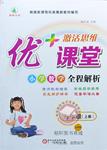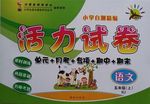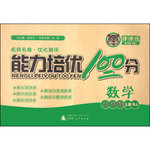题目内容
Watch for us on TVTHIS summer, many Beijing middle school students had a different kind of vacation. Instead of hanging out with friends or traveling, they were training hard for the National Day celebration.
To mark the special anniversary (周年纪念)of China this year, the students performed a group dance in a big parade(游行)on Tian’anmen Square on October 1.
Students were training from 7:30am to around 10:00am or from 4 pm to 6:30pm. It was to avoid the summer heat.
They wore white hats, T-shirts and dark-blue trousers. The hats and T-shirts were printed with a red logo, the number ‘60”.
The first week of training was PE. Students practiced standing and squatting(蹲)。 Then they moved on to practice the group display. The use colored sheets in the shape of flowers as a prop(道具). When we watch the parade on TV we will see them making colorful patterns(图案)with them.
What do the students think of their unusual summer?
“Sometimes we find it a bit tiring.” says Lu Wenqi,13.”But most of us think it’s a great honor to take part in such an important celebration.”
Li Hui, 15, thinks the same as Lu. She says her classmates are seldom late for training.
“It’s a wonderful chance for us,’ says Li. “When my parents were in college, they also took part in a national day celebration. Now it’s my turn!”
By Wang Min
21st Century Teens staff
【小题1】How long were the students training every day?
| A.two and a half hours | B.five hours | C.six hours | D.five and a half hours |
| A.running . | B.standing and squatting | C.squatting | D.standing |
| A.A bit tiring | B.It’s a bit honor | C.It’s meaningful | D.It’s meaningless |
| A.It’s a wonderful chance for the students to take part in such an important celebration.” |
| B.The students are seldom late for training. |
| C.Their parents also took part in a national day celebration. |
| D.Now it’s my turn! |
【小题1】A
【小题1】B
【小题1】C
【小题1】A解析:
略

 激活思维优加课堂系列答案
激活思维优加课堂系列答案 活力试卷系列答案
活力试卷系列答案 课课优能力培优100分系列答案
课课优能力培优100分系列答案 Watch for us on TV
THIS summer, many Beijing middle school students had a different kind of vacation. Instead of hanging out with friends or traveling, they were training hard for the National Day celebration.
To mark the special anniversary (周年纪念)of China this year, the students performed a group dance in a big parade(游行)on Tian’anmen Square on October 1.
Students were training from 7:30am to around 10:00am or from 4 pm to 6:30pm. It was to avoid the summer heat.
They wore white hats, T-shirts and dark-blue trousers. The hats and T-shirts were printed with a red logo, the number ‘60”.
The first week of training was PE. Students practiced standing and squatting(蹲)。 Then they moved on to practice the group display. The use colored sheets in the shape of flowers as a prop(道具). When we watch the parade on TV we will see them making colorful patterns(图案)with them.
What do the students think of their unusual summer?
“Sometimes we find it a bit tiring.” says Lu Wenqi,13.”But most of us think it’s a great honor to take part in such an important celebration.”
Li Hui, 15, thinks the same as Lu. She says her classmates are seldom late for training.
“It’s a wonderful chance for us,’ says Li. “When my parents were in college, they also took part in a national day celebration. Now it’s my turn!”
By Wang Min
21st Century Teens staff
【小题1】How long were the students training every day?
| A.two and a half hours | B.five hours | C.six hours | D.five and a half hours |
| A.running . | B.standing and squatting | C.squatting | D.standing |
| A.A bit tiring | B.It’s a bit honor | C.It’s meaningful | D.It’s meaningless |
| A.It’s a wonderful chance for the students to take part in such an important celebration.” |
| B.The students are seldom late for training. |
| C.Their parents also took part in a national day celebration. |
| D.Now it’s my turn! |
In the middle of a dark forest, there lives an owl(猫头鹰). All the animals know that he is the wisest(聪明的) among all of them. So they often go to him and tell him their troubles. Then the owl always teaches them what they should do.
One day, a little bird goes up to the owl. She is crying. “what’s wrong with you?” asks the owl.
“I’m not happy at all. I don’t want to be a bird,” the bird says.
“Why don’t you want to be a bird?” asks the owl.
“I am so small, weak and useless,” she cries. “I want to be big and strong like the lion. He is very important, but I am not”
Then the owl whispers(耳语) something in her ear. At once the bird dries her tears and goes away. One week later, the bird came back. “Oh, thank you very much. You are a very wise owl,” she says to the owl. “I am very happy now. Every day, I sit on top of the tallest tree and watch for(监视) lions and tigers. When they come near, I shout at the top of my voice. Then my friend all run and hide. They are very thankful to me. I am useful and important now”
The wise owl smiles and says, “No one in this world is useless.”
【小题1】The animals in the forest visit the owl because_____________
| A.they are all afraid of him |
| B.the owl can help them when they don’t feel well |
| C.the owl can tell them what they should do when they have some problems. |
| D.they are wiser than the owl. |
| A.the lion often beats her |
| B.she thinks she is too small, weak and useless |
| C.she wants to kill the lion |
| D.she is very important. |
| A.that she is stronger than the lions and the tigers |
| B.that she must be happy |
| C.that she must run and hide |
| D.to sit on top of the tallest tree and watch for lions and tigers |
| A.眼珠 | B.汗水 | C.眼泪 | D.雨水 |
| A.the bird’s friends are very thankful to her because she drives the tigers and lions away(赶走) |
| B.the lions and tigers run away when they hear the bird’s voice |
| C.the bird thinks that she is useful and important now |
| D.the owl is useless. |
阅读填词 (共10小题,每题1分,满分10分)
阅读短文,根据所读内容在短文后图表中的空格里填入一个恰当的单词
Never go into a supermarket hungry! This is a good piece of advice. If you go shopping for food before lunchtime, you’ll probably buy more than you plan to. Unluckily, however, just this advice isn’t enough for consumers (消费者) these days. Modern shoppers need an education in how and how not to buy things at the store. First, you check the weekly newspaper advertisements. Find out the items that are on sale and decide if you really need these things. In other words, don’t buy anything just because it’s cheaper than usual! “New and improved!” or “All Natural” on the front of a package (包装) influence you. Instead, read the list of ingredients (原料) on the back. Third, compare prices: that is, you should examine the prices of both different brands(商标、牌子) and different size of the same brand.
Another suggestions for consumers is to buy ordinary items(商品) instead of famous brands. Ordinary items in supermarkets come in ordinary packages. These products are cheaper because producers don’t spend much money on packing or advertising.
The quality, however, is usually as good as the quality of well-known name brands. In the same way, in buying clothes, you can often find high quality and low prices in brands that are not famous. Shopping in discount clothing stores can help you save a lot of money. Although these stores aren’t very attractive, and they usually do not have individual dressing room, not only are the prices low, but you can often find the same famous brands that you find in high-priced department stores(百货商店).
Wise consumers read magazine ads and watch TV commercial (广告), but they do this with one advantage: knowledge of the psychology (心理) behind the ads. In other words, well-informed(消息灵通的) consumers watch for information and check for misinformation. They ask themselves questions. Is the advertiser hiding something in small print at the bottom of the page? Is there any real information in the commercial, or is the advertiser simply showing an attractive image? With the answer to these questions, consumers can make a wise choice.
|
Main topic: suggestions for 1. |
||||
|
Suggestions |
Never go into a supermarket when you 2. hungry! |
Need an education in how and how not to buy things at the store. |
Buy ordinary items instead of famous 3. |
Read ads with 4. of the psychology behind the ads. |
|
5. for the suggestions |
It is 6. to buy more than you plan to |
Consumers can make a wise7. |
The prices of 8. items are lower because producers spend 9. money on packaging. |
Advertisers sometimes don’t tell the 10. |